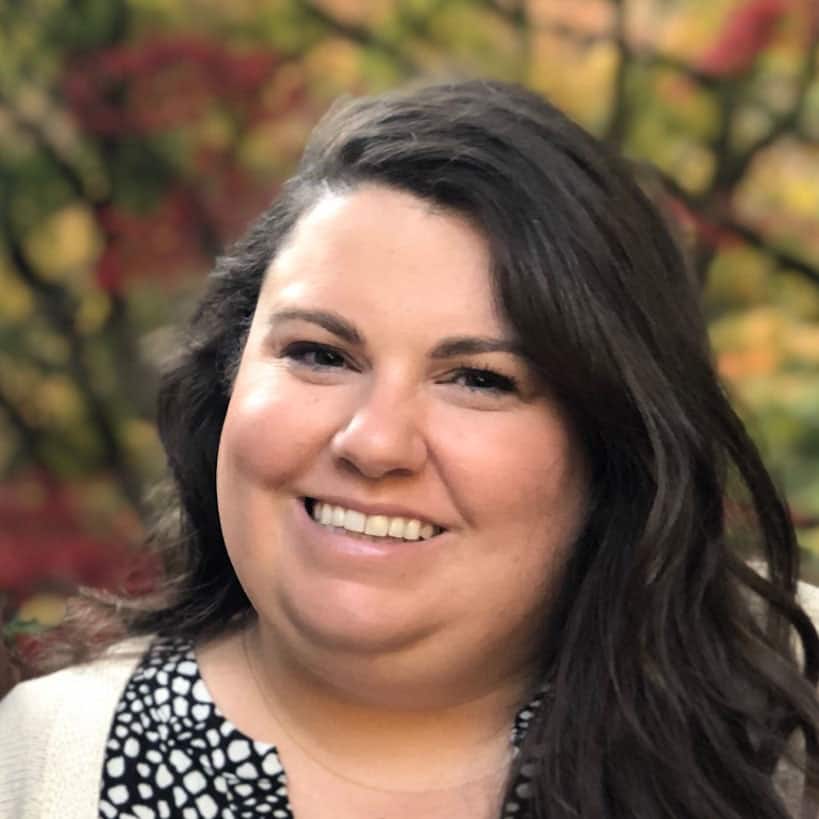When World Relief launched the USAID-funded SCOPE Project (Strengthening Community Health Outcomes through Positive Engagement) four years ago, we were motivated by the idea of making health services as accessible as possible for women and children in some of the hardest-to-reach areas in Haiti, Kenya, Malawi and South Sudan.
In pursuit of this goal, we considered how SCOPE could strengthen and extend the reach of the healthcare system into communities and homes with little or no access to regular services.
Relying on a trifecta of actors to create connections between health facilities and the community, we worked closely with community health workers within the health system, offering training and providing mentoring and supervision. We also worked alongside faith leaders who were trained to speak to their congregations about sensitive topics like family planning.
But at the center of the project are Care Groups. These groups were led by volunteer women who reached out to other women in their neighborhoods and surrounding areas to provide community-based health education.

The women in our Care Groups meet regularly to be trained on social behavior change communication and related skills-building on various health topics, including safe pregnancy and birth, nutrition, family planning, child health, hygiene and sanitation.
Following each meeting, Care Group volunteers share resources on these simple, yet lifesaving topics with their neighbors. As a result, healthcare messages begin to spread rapidly throughout the hardest-to-reach areas, improving health knowledge and practice, and creating demand for healthcare services.
As we come to the end of the project, SCOPE will have worked with 14,972 Care Group volunteers, reaching 104,181 neighbor women across many communities!
Here are four key lessons we learned in the SCOPE project by working through Care Groups:
1. Care Groups extend the reach of community health workers and provide long-term sustainability.
Because Care Group volunteers are equipped to train women directly in their communities, they can help offer sustainability to short-term projects. Social cohesion is an important aspect of this activity, and together with the sense of ownership and leadership local volunteers experience through Care Groups, they often continue to meet in many communities long after the project ends.
For example, in early 2023, heavy rainfall and flooding caused displacement and food shortages in South Sudan’s Ibba and Maridi Counties. Because Care Group leaders were embedded in their communities and already in the habit of sharing health, nutrition, hygiene and sanitation messages with their neighbors and friends, they were able to continue promoting healthy behavior even as community members relocated.

Similarly, when households in Haiti’s Les Cayes region were displaced by an earthquake in 2021, SCOPE volunteers kept in contact with their community members and even continued to provide lessons at temporary shelters in their communities during this critical time.
2. Care Groups create critical referral linkages between communities and community health workers and health centers.
As Care Groups equip women to support their neighbors’ healthcare needs, volunteers also help connect each group with available community resources, including community health workers and local faith leaders who are trained in the importance of essential Reproductive, Maternal, Newborn and Child Health (RMNCH) services.
What’s more, Care Group volunteers serve as connectors linking back and forth between community health workers, health facilities and other providers who are sharing health information, services at health facilities and vital health-related events. As a result, SCOPE has found that more people are seeking health center services.

As Peter Koipitat, a SCOPE-supported Care Group Promoter (salaried staff who train and supervise Care Group volunteers) and community health worker in Kenya, shared: “We really had a challenging time reaching our people on the ground since most of them live far away from each other.”
However, Peter went on to share that when SCOPE Care Groups were introduced to his community, he saw a drastic difference in his reach:
“With the method of cascade training, I can easily reach the households within a month and fortnightly meet the Care Group volunteers and share with them the biweekly lesson. Afterward, they go back to the community and share the information with their neighbors. Each Care Group volunteer is issued with Care Group registers. She fills in relevant community health data that we use to easily improve our community health outcomes as we share the information with the facility staff. Any case of illness does not go unnoticed. All cases that require further attention get to be referred on time by the help of my lead Care Group volunteers. I really appreciate this improved system of service introduced by World Relief. I feel that my community has gotten healthier.”
3. Volunteers who experience and create local change feel more empowered and motivated to reach their goals.
Among our Care Groups, we’ve seen that the motivation and empowerment of volunteers, from initial training through follow-up monitoring, determines how effectively the groups reach their goals.
SCOPE found that Care Group volunteers and their neighbors are motivated to learn about new topics bimonthly because they see the changes at the household level among their neighbors and are inspired to continue delivering quality support and training. The project matters to them because it feels personal and local.

Derilus Claudette, a Care Group volunteer in Haiti (locally called Outreach Group Initiative), shared that she was encouraged to see SCOPE Care Groups reach pregnant women, women of childbearing age and children under five — women with families like her own.
“As a woman and a mother,” she said, “SCOPE Outreach Group lessons will help me improve my health and the health of my family. I have noticed that families in the community tend to have many children without being able to provide for them and ensure a happy childhood. I am already very excited to share what I have learned with my community.”
4. Using Quality Improvement Verification Checklists improves overall program quality.
The careful and regular monitoring of Care Groups enabled SCOPE to adapt to challenges and provide consistent, quality support to communities. Using a Quality Improvement Verification Checklist helped us identify which Care Groups need support and how to target this support in resource-constrained environments. These checklists provide a detailed review of Care Group volunteers’ performance and the ability to improve that performance when needed.
In Malawi, the supportive supervision using a Quality Improvement Verification Checklist allowed supervisors to not only check the quality of messages being delivered, but also monitor for the presence of things like backyard gardens, the establishment of tippy taps and dish rack and sanitary facilities that can be helpful for a family’s health.
Care Group supervisors saw more motivation among volunteers whose work and efforts are recognized and appreciated using checklists.

Overall, the last four years have demonstrated that Care Groups are an invaluable resource to their communities, providing families with information to make critical health and family planning decisions. They also serve as critical linkages in SCOPE’s work to end maternal and child mortality in Haiti, Kenya, Malawi and South Sudan.
May these lessons we have learned help inspire your own work in creating lasting change!
Click here to learn more about SCOPE’s work with Care Groups.

Laura DePauw serves as the Knowledge Management Advisor for World Relief’s Strengthening Community Health Outcomes Through Positive Engagement (SCOPE) project providing knowledge management, communications, and information management across the project’s four countries.

Prava Chhetri is World Relief’s Health and Nutrition Program Advisor. She is a program practitioner with over 20 years of experience in designing, managing grants, monitoring, and evaluating health and nutrition projects. Prava lives in the Washington, D.C. area.

